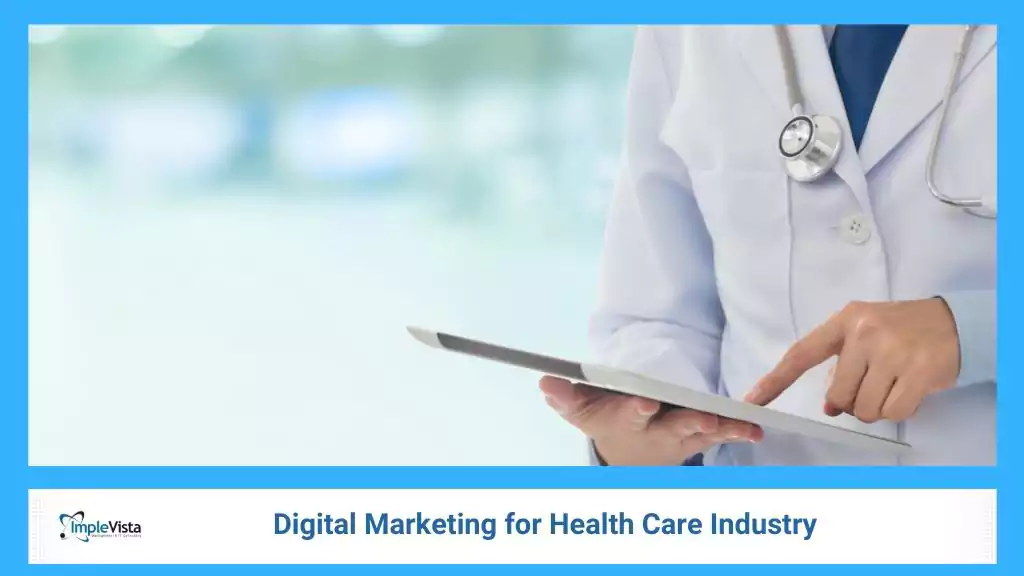The healthcare industry is undergoing a significant transformation, driven by the increasing integration of digital technologies. In Bangladesh, this evolution is reshaping how healthcare providers interact with patients, deliver services, and enhance patient experiences. Partnering with a digital marketing agency can empower healthcare industries to meet the growing demand for online engagement, brand visibility, and trust.
This article explores how a digital marketing agency for healthcare industries in Bangladesh can help organizations thrive in this competitive landscape. It also provides a detailed insight into strategies, benefits, and the role of specialized agencies in driving success.
What is the healthcare system in Bangladesh?
The healthcare system in Bangladesh is a mixed system comprising public, private, and non-governmental organizations (NGOs), each playing a distinct role in addressing the country’s healthcare needs. Below is an in-depth look at its structure, functioning, and challenges:
Structure of the Healthcare System
Public Healthcare Sector
The public healthcare system is managed by the Ministry of Health and Family Welfare (MoHFW) and operates on a tiered structure:
- Primary Healthcare
- Delivered through Community Clinics (CCs) and Upazila Health Complexes (UHCs) at the sub-district level.
- Provides basic medical services, including maternal and child healthcare, immunizations, and disease prevention programs.
- Community clinics, established under government initiatives, aim to serve rural populations, often underserved by the private sector.
- Secondary Healthcare
- Provided through District Hospitals, which cater to a larger population and offer specialized care in fields like general surgery, pediatrics, and gynecology.
- Equipped with more advanced diagnostic and treatment facilities than primary care centers.
- Tertiary Healthcare
- Delivered at Medical College Hospitals and specialized institutes in major urban centers, such as Dhaka and Chittagong.
- Offers advanced medical care, research, and training, covering complex medical needs and surgical interventions.
Private Healthcare Sector
The private sector has become a significant player in Bangladesh’s healthcare landscape, contributing to both urban and rural healthcare services.
- Hospitals and Clinics
- Private hospitals offer high-quality healthcare services, including state-of-the-art facilities, faster diagnosis, and specialized treatments.
- However, these are often expensive, catering primarily to middle- and upper-income groups.
- Diagnostic Centers
- Widely available in urban and semi-urban areas, offering advanced diagnostic services such as imaging, pathology, and laboratory tests.
- Private Practitioners
- Many healthcare professionals operate individual practices, providing personalized care to patients.
Non-Governmental Organizations (NGOs)
NGOs play a critical role in supplementing the public healthcare system, especially in rural and underprivileged areas.
- Organizations like BRAC, Gonoshasthaya Kendra, and Grameen Health Services provide affordable and accessible care.
- Focus on community health programs, maternal and child health, and combating infectious diseases like tuberculosis and malaria.
International Aid and Partnerships
International organizations like the World Health Organization (WHO), UNICEF, and World Bank contribute to healthcare development through funding, technical support, and implementation of programs.
Key Features of the Healthcare System
- Universal Health Coverage Goals
- The government is working towards achieving Universal Health Coverage (UHC) by ensuring equitable access to essential healthcare services without financial hardship.
- Health Workforce
- Bangladesh has a growing pool of healthcare professionals, including doctors, nurses, and allied health workers. However, there is still a significant shortage, especially in rural areas.
- Health Financing
- The healthcare system heavily relies on out-of-pocket (OOP) expenditures, which account for approximately 63% of total health spending.
- Government healthcare services are subsidized, but high OOP costs in private facilities pose a burden on low-income populations.
- Traditional and Alternative Medicine
- Bangladesh also has a strong tradition of Ayurveda, Unani, and homeopathy, integrated into the formal healthcare system and regulated by the government.
Achievements of the Healthcare System
- Maternal and Child Health
- Significant reductions in maternal and child mortality rates have been achieved through public health campaigns, immunization programs, and NGO interventions.
- Infectious Disease Control
- Bangladesh has made substantial progress in controlling diseases like tuberculosis, leprosy, and malaria through targeted health programs.
- Expanded Immunization Programs
- The Expanded Program on Immunization (EPI) has been highly successful in vaccinating children against diseases like polio, measles, and diphtheria.
Challenges in the Healthcare System
- Urban-Rural Disparity
- A significant gap exists between urban and rural healthcare services. Urban areas have better access to facilities, specialists, and technology, whereas rural areas often rely on poorly equipped community clinics.
- Inadequate Infrastructure
- Many public healthcare facilities lack sufficient medical equipment, drugs, and infrastructure to meet growing demands.
- Workforce Shortages
- Bangladesh faces a shortage of skilled healthcare professionals, including doctors, nurses, and technicians, especially in rural and remote areas.
- Financial Barriers
- High out-of-pocket expenses discourage many from seeking necessary medical care, particularly for chronic diseases and specialized treatments.
- Quality of Care
- The quality of care in public hospitals is often criticized due to overcrowding, lack of training, and inefficient management.
- Rising Non-Communicable Diseases (NCDs)
- The country is witnessing a rise in lifestyle-related diseases such as diabetes, hypertension, and cardiovascular conditions, which strain the healthcare system.
- Limited Health Education and Awareness
- Many citizens lack awareness about preventive care and healthy lifestyles, leading to late diagnoses and complications.
Future Prospects and Initiatives
The government and stakeholders are taking steps to address these challenges:
- Digital Healthcare Transformation
- Telemedicine and mobile health services are growing in popularity, offering remote consultations and health monitoring.
- Digitization of healthcare records and services is being promoted to improve efficiency.
- Increased Public Health Funding
- The government is working to increase its healthcare budget to reduce the financial burden on individuals and improve facility conditions.
- Public-Private Partnerships (PPPs)
- Collaborations between the public and private sectors are being encouraged to enhance healthcare infrastructure and service delivery.
- Focus on Preventive Healthcare
- Health campaigns and community programs are being emphasized to reduce the prevalence of preventable diseases.
The healthcare system in Bangladesh is evolving, striving to meet the growing needs of its population. While challenges persist, ongoing reforms and innovations are paving the way for a more inclusive, efficient, and equitable healthcare system.
The Rising Need for Digital Marketing in Healthcare Industries
Digital marketing has become essential for the healthcare sector, primarily because patient behaviors are shifting online. Patients no longer rely solely on word-of-mouth or traditional advertisements to find healthcare solutions. They use search engines, social media platforms, and review sites to make informed decisions.
For healthcare providers in Bangladesh, this means adapting to digital marketing strategies that meet the needs of today’s patients. Digital platforms offer immense opportunities for clinics, hospitals, diagnostic centers, and individual practitioners to:
- Increase Online Visibility
A strong online presence ensures that healthcare organizations appear prominently in search engine results when patients are looking for services such as “best hospitals in Dhaka” or “pediatricians near me.” - Build Trust and Credibility
Informative content such as blogs, infographics, and patient testimonials fosters trust and establishes a healthcare provider as a reliable source of medical expertise. - Enhance Patient Engagement
Social media and email campaigns enable healthcare organizations to interact with patients, answer their queries, and share health tips, thereby maintaining ongoing relationships. - Generate Higher ROI
Unlike traditional marketing methods, digital strategies such as pay-per-click (PPC) advertising and local SEO are cost-effective and deliver measurable results, ensuring a better return on investment. - Building Trust Through Content Marketing
Informative blogs, videos, and testimonials help establish credibility and build trust in a competitive market.
Key Digital Marketing Services for Healthcare Industries
Search Engine Optimization (SEO)
SEO is the cornerstone of any successful digital marketing strategy for healthcare providers. It involves optimizing a healthcare organization’s website to rank higher in search engine results. In Bangladesh, where local searches dominate, focusing on local SEO is vital.
For example, clinics and hospitals can target location-specific keywords like “orthopedic clinic in Sylhet” to attract local patients. Additionally, SEO strategies include:
- Optimizing meta titles, descriptions, and tags.
- Enhancing website speed and mobile responsiveness.
- Publishing high-quality, keyword-rich content that addresses patient needs.
Social Media Marketing
Social media platforms like Facebook, Instagram, and LinkedIn are integral to healthcare marketing in Bangladesh. They allow healthcare providers to create engaging campaigns, promote services, and build a community of loyal patients.
Healthcare providers can use social media to:
- Share informative posts about preventive care and wellness.
- Run campaigns like “Free Health Check-Up Day” to attract attention.
- Host live Q&A sessions with doctors to address patient concerns.
Social media marketing is not just about posting updates but also about interacting with followers, responding to queries, and building a positive brand image.
Content Marketing
Content marketing is an effective way for healthcare providers to educate, inform, and engage patients. High-quality content positions healthcare organizations as experts in their field while driving organic traffic to their websites.
Examples of content marketing for healthcare include:
- Blogs and Articles: Topics like “5 Signs You Need to See a Cardiologist” or “How to Manage Diabetes Effectively” address common patient concerns.
- Videos: Explaining medical procedures or showcasing facilities builds patient trust.
- Infographics: Visual content simplifies complex medical information, making it accessible to a broader audience.
Content marketing also plays a critical role in SEO by incorporating relevant keywords to improve search engine rankings.
Pay-Per-Click (PPC) Advertising
PPC advertising is a powerful tool for healthcare providers looking to attract immediate attention. By running targeted ads on platforms like Google and Facebook, healthcare organizations can ensure their services reach the right audience at the right time.
For instance, ads for “24/7 emergency services in Dhaka” can be displayed to users searching for urgent medical care. The key advantages of PPC include:
- Precise targeting based on demographics, location, and search intent.
- Real-time analytics to measure campaign performance.
- Flexibility to adjust budgets and strategies for maximum ROI.
Email Marketing
Email marketing remains a reliable and cost-effective method for nurturing patient relationships. Healthcare providers can use email campaigns to:
- Share newsletters with health tips and updates.
- Notify patients about new services or facilities.
- Send appointment reminders and follow-up messages.
Personalized emails make patients feel valued and encourage them to stay connected with the healthcare provider.
Online Reputation Management
In the healthcare industry, reputation is everything. Patients often read reviews and testimonials before choosing a healthcare provider. Digital marketing agencies specialize in managing online reputations by:
- Monitoring and responding to reviews on platforms like Google and Facebook.
- Encouraging satisfied patients to leave positive feedback.
- Addressing negative reviews professionally to maintain trust.
Benefits of Partnering with a Specialized Digital Marketing Agency
Collaborating with a digital marketing agency for healthcare industries in Bangladesh offers several advantages:
- Industry Expertise
Healthcare marketing requires a deep understanding of patient behaviors, medical ethics, and compliance regulations. Specialized agencies are equipped to navigate these complexities effectively. - Tailored Strategies
Every healthcare organization is unique. A digital marketing agency develops customized strategies based on the specific goals, target audience, and services of a clinic or hospital. - Cutting-Edge Tools and Technologies
Agencies use advanced tools for analytics, keyword research, and performance tracking to ensure campaigns deliver measurable results. - Time and Cost Efficiency
Outsourcing digital marketing allows healthcare providers to focus on their core responsibilities while leaving marketing efforts to professionals. - Scalable Solutions
Whether it’s a small clinic or a multi-specialty hospital, digital marketing agencies offer scalable solutions that adapt to the organization’s growth.
The Role of Implevista Digital in Transforming Healthcare Marketing
At Implevista Digital, we specialize in delivering innovative digital marketing solutions for the healthcare industries in Bangladesh. Our team understands the unique challenges healthcare providers face and designs campaigns that drive results.
Our Core Offerings
- SEO and Local SEO
We ensure that your clinic or hospital ranks at the top of search engine results, making it easier for patients to find you. - Social Media Campaigns
From creating engaging content to running targeted ads, we help you build a strong presence on social media platforms. - Content Creation
Our team of writers and designers produces high-quality blogs, videos, and infographics that inform and engage your audience. - PPC Advertising
We run cost-effective PPC campaigns to attract immediate traffic and generate leads. - Analytics and Reporting
Our data-driven approach ensures that every campaign is monitored, analyzed, and optimized for success.
Challenges in Healthcare Digital Marketing and How We Overcome Them
While digital marketing offers immense potential, the healthcare industry faces unique challenges:
- Regulatory Compliance
Ensuring compliance with medical advertising regulations is critical. We prioritize ethical practices and transparency in all campaigns. - Patient Privacy
Protecting patient information is non-negotiable. We implement stringent data security measures to maintain confidentiality. - Trust Building
Healthcare decisions are deeply personal. We focus on creating authentic, informative content that resonates with patients.
FAQs About Digital Marketing for Healthcare Industries
1. How big is the healthcare market in Bangladesh?
The healthcare market in Bangladesh is substantial and growing rapidly, valued at approximately $11 billion in 2024, with projections indicating further growth due to increased demand for medical services, pharmaceuticals, and health infrastructure. This expansion is driven by population growth, urbanization, and rising awareness about healthcare.
2. How to improve the healthcare system in Bangladesh?
Improving the healthcare system in Bangladesh requires a multifaceted approach to address its existing challenges and ensure equitable access to quality healthcare for all. First, increasing government investment in healthcare infrastructure and services is crucial. This includes building more hospitals, equipping facilities with modern medical technology, and ensuring a steady supply of essential medicines. Developing a skilled workforce by training and retaining more healthcare professionals, particularly in rural and underserved areas, is equally important. Digital transformation, such as expanding telemedicine and e-health initiatives, can improve accessibility, especially in remote regions, by connecting patients with doctors virtually.
Public-private partnerships (PPPs) can play a pivotal role in enhancing healthcare delivery, as they combine the resources of the government with the efficiency of the private sector. Emphasizing preventive healthcare is another vital strategy. By promoting awareness campaigns and programs about disease prevention and healthy lifestyles, the burden on the healthcare system can be significantly reduced. Financial reforms, such as introducing affordable health insurance schemes, can lower out-of-pocket expenses for patients, making healthcare more accessible to low-income families.
Additionally, upgrading the quality of care in public hospitals, ensuring accountability, and addressing inefficiencies are essential for improving trust in the public healthcare system. Strengthening rural healthcare facilities and ensuring equitable distribution of resources can bridge the urban-rural disparity in access to care. By addressing these areas comprehensively, Bangladesh can pave the way for a more inclusive, efficient, and sustainable healthcare system.
3. What is digital marketing for healthcare industries?
Digital marketing involves using online strategies like SEO, social media, and content marketing to promote healthcare services.
4. Why is SEO important for healthcare providers?
SEO helps healthcare providers rank higher on search engines, making it easier for patients to find their services online.
5. How does social media benefit healthcare industries?
Social media builds patient trust, shares valuable information, and promotes services interactively.
6. What is local SEO in healthcare marketing?
Local SEO optimizes a healthcare provider’s online presence for location-based searches.
7. How can PPC advertising help clinics and hospitals?
PPC ensures immediate visibility by placing targeted ads in front of patients actively searching for healthcare services.
8. What is the role of content marketing in healthcare?
Content marketing educates and engages patients, building trust and authority.
9. Why should I choose a specialized healthcare digital marketing agency?
Such agencies understand industry-specific challenges and offer customized, compliant solutions.
10. How do you measure the success of healthcare marketing campaigns?
Metrics like website traffic, appointment bookings, and patient inquiries are commonly used.
11. Can small clinics benefit from digital marketing?
Even small clinics can attract local patients and grow their practices with targeted strategies.
12. What’s the cost of hiring a healthcare digital marketing agency?
Costs vary based on services offered, but most agencies provide scalable packages to suit different budgets.
Digital marketing is no longer optional for the healthcare industry in Bangladesh—it is essential. By partnering with a specialized digital marketing agency for healthcare industries, providers can enhance their online visibility, build patient trust, and achieve sustainable growth.
At Implevista Digital, we are committed to empowering healthcare organizations with tailored strategies and measurable results. Let us help you connect with your patients, improve engagement, and grow your practice in today’s digital-first world. Contact us today to get started!
Contact
Ready to Grow Your healthcare system?
Ready to revolutionize your healthcare practice with the power of digital marketing? Partner with Implevista Digital, the leading digital marketing agency for healthcare industries in Bangladesh. Contact us today for a free consultation and let us help you connect with your patients like never before.
📞 Call us at [+880 17 1776 0924]
🌐 Visit us at [digital.implevista.com]





